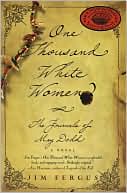Category Books
- Fiction Books & Literature
- Graphic Novels
- Horror
- Mystery & Crime
- Poetry
- Romance Books
- Science Fiction & Fantasy
- Thrillers
- Westerns
- Ages 0-2
- Ages 3-5
- Ages 6-8
- Ages 9-12
- Teens
- Children's Books
- African Americans
- Antiques & Collectibles
- Art, Architecture & Photography
- Bibles & Bible Studies
- Biography
- Business Books
- Christianity
- Computer Books & Technology Books
- Cookbooks, Food & Wine
- Crafts & Hobbies Books
- Education & Teaching
- Engineering
- Entertainment
- Foreign Languages
- Game Books
- Gay & Lesbian
- Health Books, Diet & Fitness Books
- History
- Home & Garden
- Humor Books
- Judaism & Judaica
- Law
- Medical Books
- New Age & Spirituality
- Nonfiction
- Parenting & Family
- Pets
- Philosophy
- Political Books & Current Events Books
- Psychology & Psychotherapy
- Reference
- Religion Books
- Science & Nature
- Self Improvement
- Sex & Relationships
- Social Sciences
- Sports & Adventure
- Study Guides & Test Prep
- Travel
- True Crime
- Weddings
- Women's Studies
One Thousand White Women: The Journals of May Dodd » (REV)

Authors: Jim Fergus, J. Will Dodd
ISBN-13: 9780312199432, ISBN-10: 0312199430
Format: Paperback
Publisher: St. Martin's Press
Date Published: February 1999
Edition: REV
Author Biography: Jim Fergus
Jim Fergus is field editor and monthly columnist for sports Afield magazine and also writes a monthly feature on the AllOutdoors.com Web site. His work has appeared in numerous national magazines and newspapers, and he is the author of the nonfiction book A Hunter's Road. He lives in northern Colorado.
Book Synopsis
One Thousand White Women is the story of May Dodd and a colorful assembly of pioneer women who, under the auspices of the U.S. government, travel to the western prairies in 1875 to intermarry among the Cheyenne Indians. The covert and controversial "Brides for Indians" program, launched by the administration of Ulysses S. Grant, is intended to help assimilate the Indians into the white man's world. Toward that end May and her friends embark upon the adventure of their lifetime. Jim Fergus has so vividly depicted the American West that it is as if these diaries are a capsule in time.
Kirkus Reviews
Long, brisk, charming first novel about an 1875 treaty between Ulysses S. Grant and Little Wolf, chief of the Cheyenne nation, by the sports reporter and author of the memoir A Hunter's Road (1992). Little Wolf comes to Washington and suggests to President Grant that peace between the Whites and Cheyenne could be established if the Cheyenne were given white women as wives, and that the tribe would agree to raise the children from such unions. The thought of miscegenation naturally enough astounds Grant, but he sees a certain wisdom in trading 1,000 white women for 1,000 horses, and he secretly approves the Brides For Indians treaty. He recruits women from jails, penitentiaries, debtors' prisons, and mental institutions—offering full pardons or unconditional release. May Dodd, born to wealth in Chicago in 1850, had left home in her teens and become the mistress of her father's grain-elevator foreman. Her outraged father had her kidnaped, imprisoning her in a monstrous lunatic asylum. When Grant's offer arrives, she leaps at it and soon finds herself traveling west with hundreds of white and black would-be brides. All are indentured to the Cheyenne for two years, must produce children, and then will have the option of leaving. May, who keeps the journal we read, marries Little Wolf and lives in a crowded tipi with his two other wives, their children, and an old crone who enforces the rules. Reading about life among the Cheyenne is spellbinding, especially when the women show up the braves at arm-wrestling, foot-racing, bow-shooting, and gambling. Liquor raises its evil head, as it will, and reduces the braves to savagery. But the women recover, go out on the winter kill withtheir husbands, and accompany them to a trading post where they drive hard bargains and stop the usual cheating of the braves. Eventually, when the cavalry attacks the Cheyenne, mistakenly thinking they're Crazy Horse's Sioux, May is killed. An impressive historical, terse, convincing, and affecting.
Table of Contents
Subjects
 Native American Westerns
Native American WesternsWesterns
 Western - Women of the West
Western - Women of the WestFiction Books & Literature
 Fiction Subjects
Fiction Subjects  Historical Figures - Fiction
Historical Figures - FictionFiction Books & Literature
 Fiction Subjects
Fiction Subjects  Literary Styles & Movements - Fiction
Literary Styles & Movements - FictionFiction Books & Literature
 Fiction Subjects
Fiction Subjects  Love & Relationships - Fiction
Love & Relationships - FictionFiction Books & Literature
 Fiction Subjects
Fiction Subjects  Politics & Social Issues - Fiction
Politics & Social Issues - FictionFiction Books & Literature
 Fiction Subjects
Fiction Subjects  Settings & Atmosphere - Fiction
Settings & Atmosphere - FictionFiction Books & Literature
 Historical Fiction
Historical Fiction  Historical Characters - Fiction
Historical Characters - FictionFiction Books & Literature
 Westerns
Westerns  Fiction Subjects
Fiction SubjectsFiction Books & Literature
 Westerns
Westerns  Historical Fiction
Historical FictionFiction Books & Literature
 Westerns
Westerns  Peoples & Cultures - Fiction
Peoples & Cultures - FictionFiction Books & Literature
 Westerns
Westerns  Westerns
WesternsHistory
 Historical Fiction
Historical Fiction  Historical Characters - Fiction
Historical Characters - FictionNonfiction
 History
History  Historical Fiction
Historical Fiction
